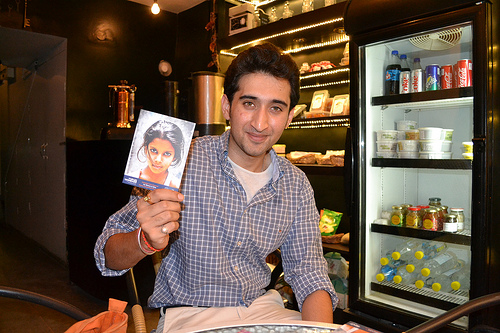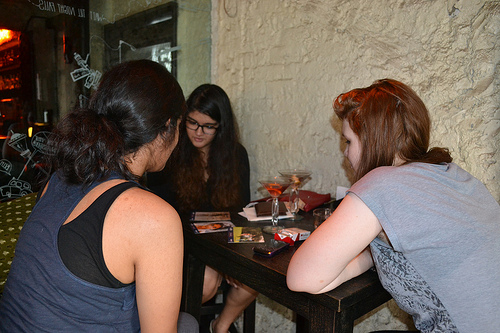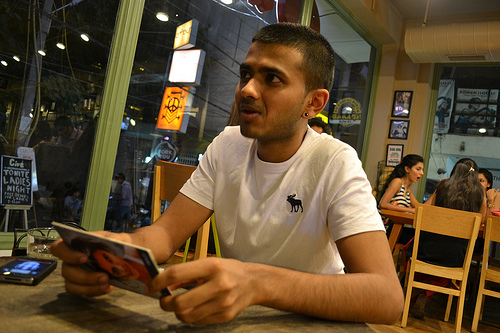Young people rally to say no to violence
In December 2012, UN Women launched the Say No – UNiTE to End Violence against Women campaign, a nationwide photo competition. UN Women spoke to some Delhites around the city and their views on violence against women in the context of these postcards.Date:
New Delhi - “This is haunting… it is hard to look away. Such a powerful image wants to make people pick up the card and read more about it,” says 21-year-old Alisha as she looks at the picture of a young girl gazing into the horizon. The picture, clicked by Namrata Aggarwal, was the runner up in a competition organized by UN Women as part of the Say No – UNiTE to End Violence against Women campaign.
Launched after the brutal gang-rape of a young paramedical student in New Delhi in December 2012, the competition brought young people from across the country. They were encouraged to submit pictures that symbolized Freedom from Violence against women and girls. As a student involved with gender issues, Alisha believes that though these postcards could play an important role in sensitization, but further actions need to be taken to prevent people from ‘looking the other way’.
Out of the thousands of submissions that UN Women received, three winners – Tash McCarroll, Akshita Agrawal and Animesh Malakar, and one runner up Namrata Agrawal, saw their photos printed on postcards that were placed in coffee shops and bars in several big Indian cities.

Targeting young people is the right approach to an issue like this, feels 23-year old Kanav. Photo Credit : UN Women/Marion Duquesne
26-year-old Ankit Gupta believes that postcards could be one element of action. “If I have to take an action, I can definitely visit the Facebook page, I can go to the website but I think it has to come out of me,” he says.
Born and brought up in Singapore, he became aware of the horrors that women face in the country after he came to live in Delhi. Shreya and Diva, two 17-year-olds believed that action needs to be taken at an individual level, it can be just being strong as an individual woman and not conforming to what society tells you to be or what your parents tell you. “Just being strong and free like your pictures show,” they say.

Just be strong and free like your pictures show say Shreya and Diva, two 17-year-olds. Photo Credit : UN Women/Marion Duquesne
Most of the postcards have already left the stands, a fact that indicates their popularity.
All the young Indians that UN Women spoke to said that they could relate to violence against women in one way or another, whether directly or because they hear about it every day.
They also agreed that action needs to be taken to end violence against women, each in their own way. They believe that their generation and the ones to come will bring change to India. “I think in the next five years, 65 percent of the population of India will be in the age group 20 to 40, which is supposed to be the generation in which we are living. Targeting young people is the right approach to an issue like this,” says 23-year-old Kanav.

26-year-old, Ankit Gupta believes that the action to prevent violence against women has to come from within himself. Photo Credit : UN Women/Marion Duquesne